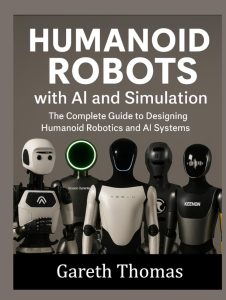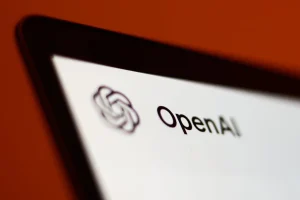The AI Revolution Exploring the Future of Work

In today’s rapidly evolving technological landscape, conversations about Artificial Intelligence (AI) are sparking a mix of excitement and concern.
As AI continues to advance, it raises questions about its impact on the labor market. From creating new jobs to potentially displacing existing ones, AI’s influence on employment is undeniable.
Sam Mman’s Insights on AI and Jobs
AI’s impact on the labor market is inevitable. Sam Mman, CEO of OpenAI, acknowledges this, stating publicly that while AI will create new jobs, it will also render some obsolete. This balance between job creation and loss is a key point of discussion among professionals.
Sam Mman’s comments are not new but emphasize the role of AI in reshaping jobs. He believes that AI will redefine work as we know it, much like the transition from farming to industrial jobs in history.
Despite concerns, Mman suggests that AI will allow people to focus on more fulfilling tasks, leaving mundane jobs to machines. This shift promises a future where humans engage in work that truly matters.
AI’s Challenge to Traditional Work
The thought of AI taking over jobs can be unsettling. While many fear a loss of jobs, history suggests that technological advances spur new opportunities.
The challenge lies in understanding which jobs will remain relevant as AI takes over routine tasks. Many jobs today might seem trivial, but they will evolve as society does.
This technological shift is reminiscent of past changes. Just as our ancestors couldn’t fathom today’s jobs, we can’t predict all future roles AI will create.
Economic Impacts and Society
AI is a double-edged sword. It boosts productivity but also threatens traditional employment structures.
Economic shifts due to AI will widen the gap between rich and poor unless addressed properly. This inequality could lead to societal unrest.
As AI becomes more prevalent, its effects on the economy will be profound. The divide between those who benefit from AI and those who don’t will be a central issue.
Wealth Distribution and Its Consequences
Wealth distribution is a critical concern with AI’s rise. Some fear AI will concentrate wealth in the hands of a few.
Billionaires acknowledge the potential for societal upheaval if wealth disparities grow. They warn of increased tensions if AI benefits are not shared.
Addressing wealth inequality is crucial. If disparities increase, it could lead to instability, affecting everyone, rich or poor.
AI: Catalyst for Change or Threat to Stability?
AI is both a catalyst for change and a potential threat to societal stability. It promises efficiency but must be managed wisely.
The shift AI brings requires rethinking societal structures. With proper measures, AI can enhance prosperity without causing harm.
Careful planning is essential to ensure AI benefits everyone. Addressing ethical and economic implications will be vital for a harmonious transition.
Real Concerns from Real Voices
The fears surrounding AI are not unfounded. Industry leaders and experts voice concerns about AI’s potential to disrupt.
While some view AI as a threat, others see it as an opportunity for innovation. This dual perspective highlights the complexities of AI’s role in society.
Balancing AI’s benefits with its risks is an ongoing challenge. As technology progresses, so must our understanding and adaptation to its effects.
The Future of Jobs in an AI-Driven World
AI will undoubtedly redefine the job market, creating and eliminating roles.
Education and adaptation are key to thriving in an AI-driven world. Preparing for changes in the job landscape is essential for future success.
The nature of jobs will change, focusing more on human-centered skills. AI will handle mundane tasks, freeing humans to pursue creativity and problem-solving.
Potential Solutions and Societal Responses
Universal Basic Income (UBI) is one proposed solution to counteract AI’s job displacement effects. It aims to provide a safety net for all.
However, UBI alone might not suffice. A sense of purpose from work is essential for self-respect and societal well-being.
Alongside financial security, meaningful engagement in society will be crucial as AI changes the work landscape.
Balancing Innovation and Ethics
Ethical considerations must guide AI’s integration into society. Ensuring responsible use will be a key priority.
Striking a balance between innovation and ethics ensures AI serves the common good.
As AI evolves, its development should prioritize humanity’s best interests, promoting both technological progress and ethical responsibility.
As AI technology continues to advance, its impact on the job market will be profound. Preparing for these changes is essential.
The future of work promises a blend of challenges and opportunities. Embracing this shift will require thoughtful adaptation and ethical considerations.







